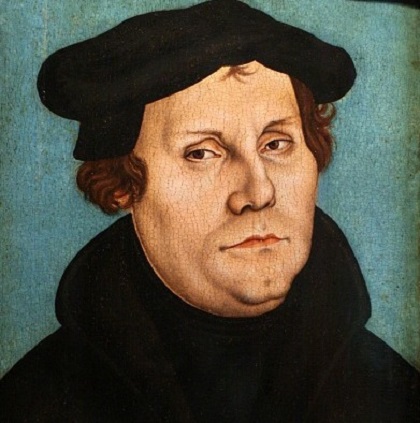
Martin Luther’s disagreements with the doctrines of the Roman Catholic Church set off a chain of events that within a few decades destroyed Germany’s religious unity. Although one of the most influential figures in German history, Luther was only one of many who were critical of the Roman Catholic Church. However, because of the power of his ideas and the enormous influence of his writings, it is he who is regarded as the initiator of the Protestant Reformation. Luther quickly acquired a large following among those disgusted by rampant church corruption and unfulfilled by mechanistic religious services. Many warmed to his contention that religion must be simplified into a close relationship of human beings with God without the extensive mediation of the Roman Catholic Church and its accretion of tradition.
A less exalted reason for the wide distribution of Luther’s doctrines was the development of printing with movable type. The Reformation created a demand for all kinds of religious writings. The readership was so great that the number of books printed in Germany increased from about 150 in 1518 to nearly 1,000 six years later.
Luther’s ideas soon coalesced into a body of doctrines called Lutheranism. Powerful supporters such as princes and free cities accepted Lutheranism for many reasons, some because they sincerely supported reform, others out of narrow self-interest. In some areas, a jurisdiction would adopt Lutheranism because a large neighboring state had done so. In other areas, rulers accepted it because they sought to retain control over their subjects who had embraced it earlier. Nearly all the imperial cities became Lutheran, despite the fact that the emperor, to whom they were subordinate, was hostile to the movement. Historians have found no single convincing explanation of why one area became Lutheran and another did not, because so many social, economic, and religious factors were involved.
Given the revolutionary nature of Lutheranism and the economic and political tensions of the period, it is not surprising that the Reformation soon became marked by violence and extremism. The Knights’ War of 1522-23, in which members of the lower nobility rebelled against the authorities in southwestern Germany, was quickly crushed. Some of the rampaging knights were ardent supporters of Luther.
Martin Luther opposed the peasants’ cause and wrote an impassioned tract demanding their quick suppression. However radical his religious views, Luther was a social and political conservative. He believed that the end of the world was imminent and regarded practical affairs as having little importance compared with the effort to win eternal salvation. Therefore, he counseled obedience to worldly authorities if they allowed freedom of worship. Lutheranism thus became a means of upholding the worldly status quo and the leaders who adopted the new faith. In contrast to England, where Protestantism retained a significant radical social element, German Protestantism became an integral part of the state. Some historians maintain that this integration of state and church has deprived Germany of a deeply rooted tradition of political dissent as found in Britain and the United States.
